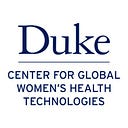Recap: “Frugal Science: How to Build Global Communities around Ideas,” with Dr. Manu Prakash
Last week, as a part of our Leaders in Global Health Seminar Series, we spoke with Dr. Manu Prakash, a MacArthur Grant winning professor of bioengineering at Stanford University, as he talked with us about Frugal Science and Global Applications to Worldwide Issues
In this event recap, we want to share with you a few key topics of discussion from the event. We also encourage you to watch the full discussion on our YouTube channel.
Dr. Prakash opened his presentation with a little bit about himself and his work, and then posed several questions including “Who will define the future of science in our society? Who is science for?” and follows it up by addressing some of the struggles faced today, namely the issues with access to science in some communities. He briefly connects this to some of his work overseas, including in Ghana, where a single bus stop was the only means and location for healthcare in some communities.
The next topic of conversation was COVID-19 and the “new era of Health Age” we are in today and how we as a collective have ultimately failed when it comes to providing the technology needed to combat the disease as well as its accompanying issues (rise in other diseases in addition to COVID, global biodiversity loss, or lack of proper access to “remote learning” styles of education) to everyone in need. He highlights the lack of global solidarity in dealing with the virus and asks how we as the world will deal with the issues to come in the future.
Prakash followed up by emphasizing the need for planetary-scale solutions for all issues that make an exclusive environment for scientists around the globe and how global challenges require global talent in order to reach a sufficient solution. He tells a story about the launching of Sputnik where telescopes were distributed around the world in order to track satellites during the Space Race starting in the late 1950s, and connects this model of community-based science to community health programs today, which often struggle with volunteer empowerment and support, especially in low income communities.
He then moved on to talk about Frugal Science. Dr. Prakash talked about his work in Uganda in 2013 talking the issue of sample preparation and processing, and his studies with wingbeat acoustics in mosquitos, and how he approached these issues by using frugal science, which he defined as “merging empathy with hard sciences” as well as addressing societal issues such as gender inequalities and engaging and empowering key change-makers in the communities. He also discussed technologies and solutions, including democratizing access to science, diagnostics, and ecosystem surveillance, and what the future holds for these things.
After Dr. Prakash’s presentation, we moved into a live Q&A session, which touched on some very interesting topics including open science and the challenges in increasing research accessibility.
